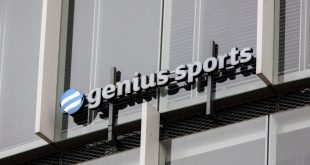A disruptive legal battle brews for all betting stakeholders, as last week Sportradar challenged the narrow structure of Betgenius and Football DataCo ‘exclusive live data’ deal.
Regulus Partners warns leadership to follow legal proceedings closely, as all licensing and distribution dynamics of the betting’s data value chain will be placed under review.
_____________
The 250th anniversary of the Boston Massacre is perhaps a fitting moment for Sportradar to launch its legal case against Genius Sports and Football DataCo. On the one hand, relatively specific commercial issues are at stake which could be dealt with in the courts on a fairly narrow basis (the British OC and his eight his men were tried and acquitted of murder, represented by John Adams no less, but two soldiers were found guilty of manslaughter); on the other hand the case came to represent something far bigger that no fair trial based upon the narrow facts of the fairly minor event in question or it’s limited direct impact could address: liberty or oppression (the fact that British troops were removed from Massachusetts Bay after a fair trial for the protagonists mattered not a jot to the broader outcome).
Similarly, the narrow nature of the case nevertheless reaches into the heart of something profound and seismic for betting on sports: what is owned, what is public domain and how can IP holders do business with what they own.
Sportradar’s case is relatively simple. Like the American Patriots, they see their rights being trampled by a system unlawfully designed to lock them out of going about their legitimate business: cries of liberty tend to ring fair to Anglo-Saxon ears. Specifically, SR is challenging FDC’s process of awarding the sole data rights agreement to GS to which SR has not been given ‘fair’ subsequent access as anti-competitive.
SR wishes for this case to be heard by a ‘specialist tribunal’ (which will presumably look at the narrow question of competitive tendering under UK/EU competition law). However, Football DataCo as a rights holder is following plenty of precedents in selling its rights to the highest bidder and Sportradar itself is keen to demonstrate the ‘exclusivity’ of a number of its rights (e.g. the NFL and MLB, the Korean Football League, ITF Tennis, and ESL esports).
It would seem curious in that context for SR to suggest that exclusivity is entirely wrong or completely insupportable, the question must, therefore, be a narrower one of the conditions of competitor access which presumably are met by other means in the ‘exclusive’ arrangements entered into by SR (or the perceived hypocrisy would perhaps stretch even judicial patience).
SR and FDC have been to court before and this battle went all the way to the CJEU (2012). The judgement found that SR’s use of ‘unofficial’ data amounted to “re-utilisation” of a database right held by FDC given the scale of investment by football in creating the database and that FDC could seek redress. Ironically, the judgement was sufficiently narrow as not to prevent ‘unofficial’ scouting at football matches continuing in order to directly create a database to resell, but sufficiently clear to help SR settle a case with BetConstruct in the High Court over “re-utilising” SR’s ‘exclusive’ ITF tennis data.
What still occurs, therefore, despite the previous case, is that an agent of a distributor (freelance or otherwise) collects data in the stadium having bought an ordinary ticket: a key related question is whether this represents breach of ticket T&Cs and/or trespass and whether this sits with the rights-holder (whose database is arguably being infringed) or the stadium/event organiser (with whom the ticket contract sits) and the extent to which these related stakeholders are prepared to work together (if indeed they are separate).
These are on one level narrow-sounding questions (who fired the first shot and under what duress in Boston will never be known), but on another level they are profound (tensions escalated to a war that permanently altered the global balance of power), on two levels.
The first issue is whether sports rightsholders can sell ‘exclusive data’ without also ensuring that exclusivity does not materially ‘disbenefit’ other suppliers – which in-turn makes the service non-exclusive at all. We would venture to suggest that a narrow ruling that threatened ‘real IP’ exclusivity would be challenged aggressively by enough stakeholders to make the government seriously rethink IP laws (though the UK is one of the strongest pro-IP jurisdictions globally, so we doubt it would come to that).
The second relates to business models: bookmakers need a broad range of sports data as well as access to core products (such as Premier League football) to be even remotely competitive. If the data is officially available then large and even mid-sized bookmakers can buy this (if they are also reputable and in jurisdictions where the IP is recognised), though they might be (marginally) disadvantaged vs. those bookmakers that choose to get data from ‘unofficial’ sources (though this case might accelerate a different term being used for data that bypasses official rights and in so doing increase the likelihood of effective enforcement).
However, many bookmakers want a turnkey solution from as few providers as possible as cheaply as possible. For example, there are 145 active betting licensees in Malta and only the top 20% or so of these have the kind of scale to be able to afford rights directly (unless they were given the significant scale and volume discounts).
The ability of an odds provider to pass on the cost of expensive official rights is therefore limited. Equally, given the increasing number of ‘exclusive rights’ by sports league, the ability of a single odds provider to stitch together all the necessary data to provide a ‘one-stop package’ stretches potentially to breaking point.
A lot is at stake, therefore. If GS – FDC wins outright (e.g. by dragging this up to a higher court and bigger issues), then this is a victory for sports (in the UK at least, perhaps more broadly), official data providers and potentially more reputable larger bookmakers which can use official rights to differentiate.
If SR wins outright then the value of exclusive data will potentially be reset to a ‘lowest common denominator’ of access, hugely benefitting data aggregators and the long-tail of bookmakers, saving bigger bookmakers money directly (but arguably costing them more in competition long-tail competition) and reducing the value of rights to sports (not exactly an obvious direction of travel in terms of government policy).
Equally, if SR wins on points or causes delays, then FDC and other sports might think twice about going all in terms of exclusivity on the next rights cycle, forcing either lower rights yields or a more direct approach to distribution and protection.
This ‘narrow spat’ could, therefore, shape the future of betting’s relationship with sports and the role data distributors; this, in turn, could have a huge impact on the ability of smaller businesses to cheaply (and legitimately) offer a full array of sports betting content. A revolution might indeed be on the horizon.
____________
Editorial note – Regulus Partners acted as a strategic advisor to Football Data Co during its 2018-2019 UK football rights tender process.










